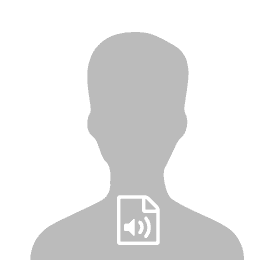Josée-Anne

Age at interview: 32
At the time of interview, Josée-Anne was 32 years old, living with her husband and two daughters, ages 1 and 3. When pregnant with her first daughter, she was more anxious than usual, but felt better by the third trimester, so she thought she was fine. However, after her daughter was born and by the time she was about six months old, Josée-Anne felt more anxious – she cried often and felt uncomfortable staying with her child alone. She told her family doctor, who referred her to a specialist, but she couldn’t get an appointment, so she tried going to the emergency department as well as therapy with a social worker, but it didn’t help.
Her stress increased when she returned to work and had a more intense routine, resulting in frequent panic attacks. This situation continued for about two years, but she thought that this was perhaps normal and that the panic attacks and anxiety would eventually stop.
When she got pregnant with her second child, the symptoms intensified right at the beginning, but things calmed down by the second trimester. Again, she thought this was normal and it would all eventually go away. But it didn’t. She got worse, began vomiting and trembling to the point that Josée-Anne couldn’t stay alone with her children. For her, the tipping point was when her symptoms became so severe that her children noticed, and she didn’t want to be in that state for the sake of her daughters. She saw her family doctor who referred her to a mental health service at an emergency department. After living the past five years with symptoms, she finally received a diagnosis. At the beginning of her treatment, she had weekly appointments with a psychiatrist, and with a psychologist, and was prescribed medication. After 4 weeks, she was already feeling much better but continued to have appointments with specialists although less frequently. She felt supported, which helped with the panic attacks. At the time of interview, she had finished her treatments with the healthcare professionals and was being seen only by her family doctor who managed her medications. She advises people in the same situation to look for professional help sooner and not wait as long as she did.
More content
- Advice for Women with Perinatal Mental Health Issues – Josée-AnneJosée-Anne advises others to talk to your doctor or psychiatrist, don't wait.
- Sharing Experiences – Josée-AnneHearing others share different experiences made Josée-Anne feel worse, especially since she didn't have a diagnosis yet.
- Seeking and Finding Reliable Information – Josée-AnneJosée-Anne doesn't recommend online forums as they can expose extreme cases of mental health issues.
- Communicating with Health Care Providers – Josée-AnneIt took Josée-Anne five years before she had a diagnosis.
- Seeking Help and Getting Diagnosis – Josée-AnneAfter 5 years of seeking help, Josée-Anne finally received a diagnosis and began treatment.
- Relationships – Josée-AnneUnable to stay home alone, Josée-Anne relied at times on her partner, who had to leave work at difficult times to be with her.
- Support from Family and Friends – Josée-Anne (clip 2)Josée-Anne didn't want to place all the burden of care on her family as she knew she needed even more support than they could provide.
- Support from Family and Friends – Josée-AnneJosée-Anne felt so anxious that she couldn't be alone and needed constant support from her husband and family.